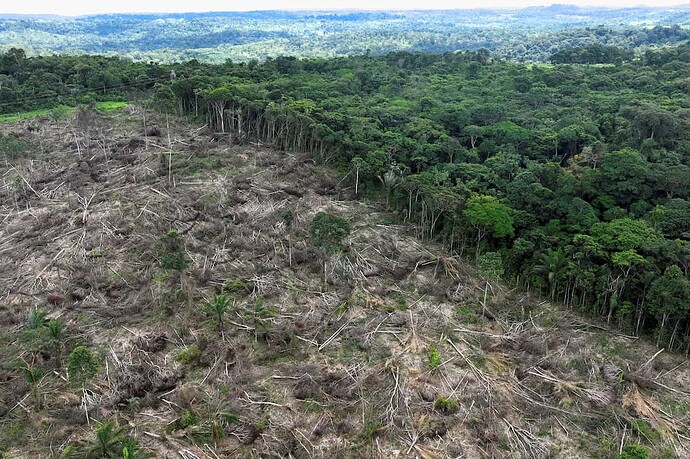EU lawmakers seek change to deforestation law and approve delay
BRUSSELS, Nov 14 (Reuters) - The European Parliament sought on Thursday to water down a ban on the import of commodities such as beef and soy linked to deforestation, and backed a one year delay to the new rule, in a fresh push-back against the EU’s environmental agenda.
The European Commission proposed a 12-month delay until December 2025 last month after complaints from a group of 20 EU countries, some companies and non-EU countries such as Brazil, Indonesia and the United States.
However, it did not propose any changes to the substance of the law, a position backed by European Union governments.
The parliament’s narrow vote to add a new ‘no risk’ category of countries with far lighter controls adds to uncertainty over the EU deforestation regulation (EUDR) as lawmakers will have to enter negotiations with EU governments to find a compromise.
It also threatens to create divisions among mainstream parties as they seek to approve the formation of a new European Commission. The amendments to weaken the law were proposed by the centre-right European People’s Party and passed with support from far-right lawmakers.
Environmental campaign groups said the vote was a terrible signal as world leaders meet in Azerbaijan to increase climate commitments. Some called on the Commission to withdraw its proposal to delay the law.
Julia Christian, campaigner at Fern, said the amendment changing risk ratings would give EU forested countries a free pass and was “particularly egregious”.
“This is a blatant case of green protectionism, which will only inflame anger among producer countries outside the EU,” she said.
The EUDR, which was due to take effect from Dec. 30, aims to ensure that products sold in Europe from cattle, cocoa, coffee, palm oil, rubber, soy and wood do not contribute to deforestation, so that EU consumers are not contributing to the destruction of forests from the Amazon to Southeast Asia.
The law also applies to European farmers.
The EUDR was hailed as a landmark in the fight against climate change, but many emerging countries say it is protectionist and could exclude millions of poor, small-scale farmers from the EU market.
Some companies, such as Nestle and Mars, have backed the law, but urged the EU to do more to help firms meet the deadline.
Make sense of the latest ESG trends affecting companies and governments with the Reuters Sustainable Switch newsletter. Sign up here.
Reporting by Philip Blenkinsop and Benoit Van Overstraeten; additional reporting by Maytaal Angel in London; Editing by Sudip Kar-Gupta, Alexandra Hudson and Mark Potter
